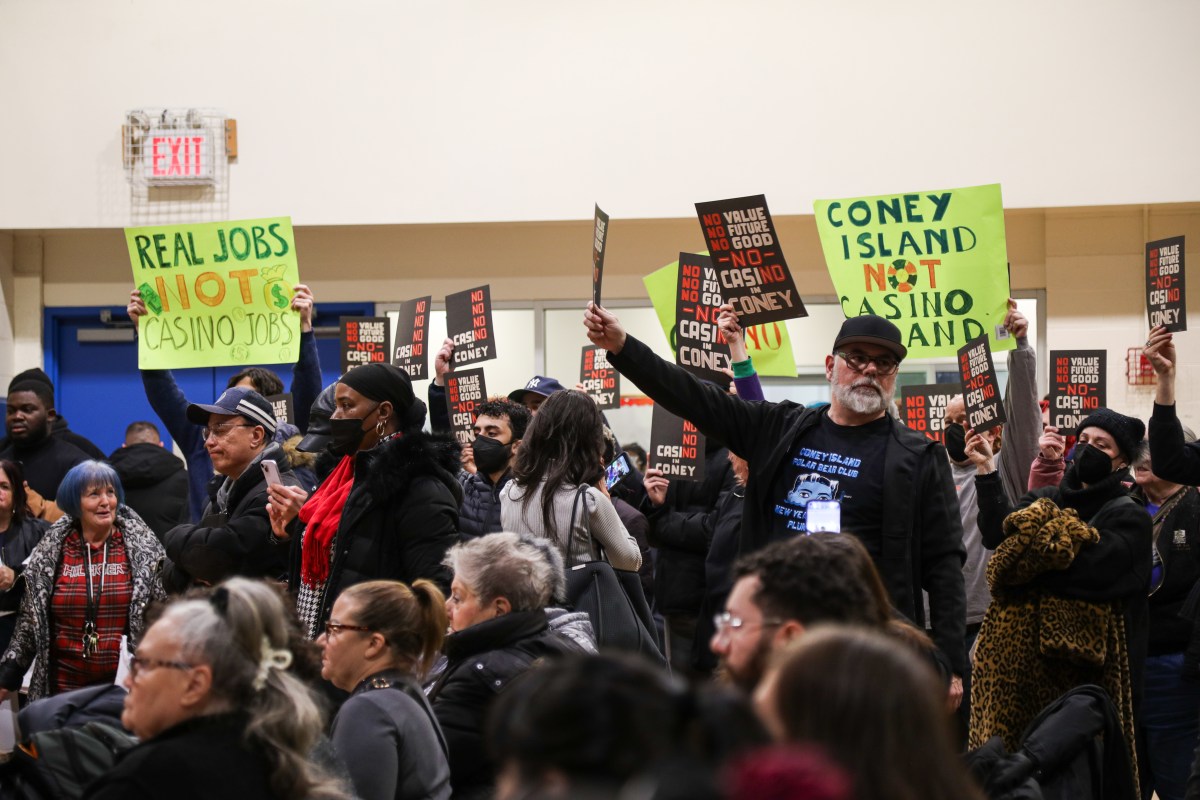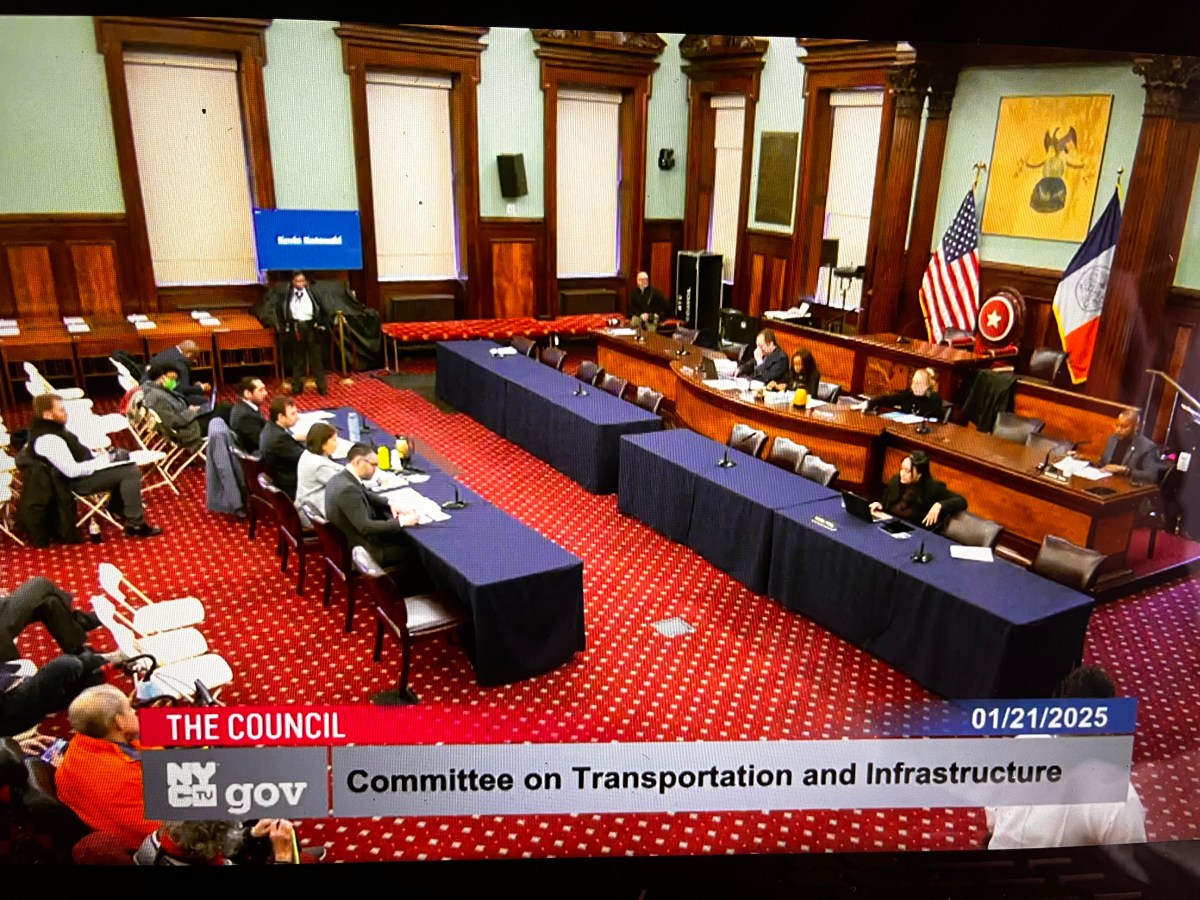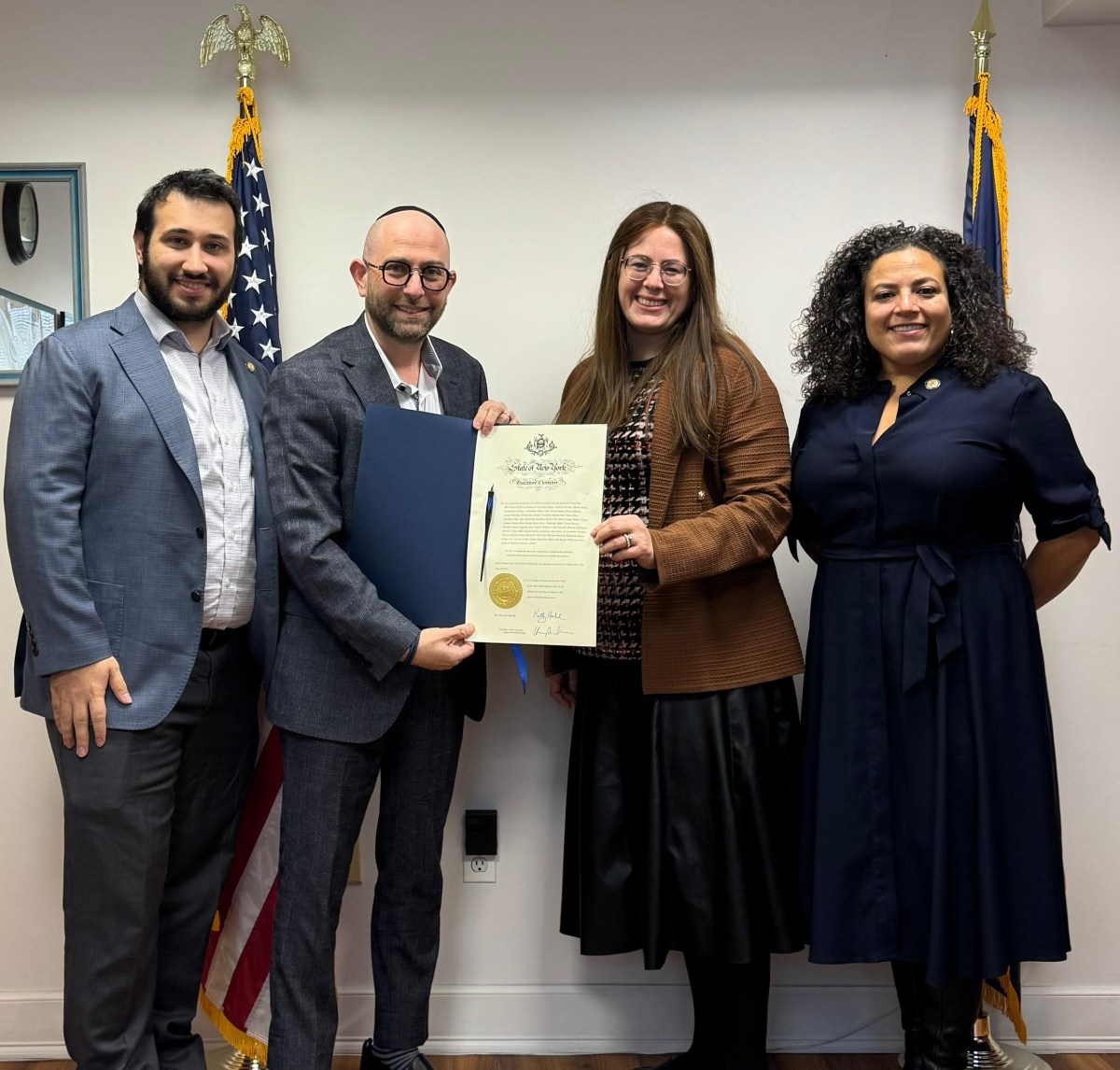Just months after Mayor Bill de Blasio unveiled a plan to eradicate childhood lead exposure, some housing advocates say the administration is brushing over lead paint hazards in private housing, where the bulk of poisoning cases occur.
De Blasio released a road map in late January which he said would drive down lead poisoning rates by conducting more audits of landlords’ abatement work and establishing a lead-free designation for homes.
The strategies did not seem significant to advocates such as Matthew Chachère, an attorney at the Northern Manhattan Improvement Corp., who has filed two lawsuits seeking to compel the city to penalize landlords for failing to abate contaminants near windows and doors when apartments are empty, as required by law.
"All they’re doing is issuing a summons for not keeping records — records that you’ve made the apartments safe — but they’re not doing anything to make the landlord actually make the apartment safe. So what have we accomplished? Nothing, absolutely nothing," said Chachère. "We’re still in a mode where we’re basically waiting for a tenant to complain or a kid to be poisoned before we respond."
Back in 2004, the city passed Local Law 1, which aimed to eliminate childhood lead poisoning by 2010. Under the measure, whenever a unit is vacated, landlords must remove or permanently cover lead-based paint on friction surfaces such as doors, windows and their frames and remediate all other lead-based paint hazards. In occupied units, the law requires annual inspections of any apartment home to a child under the age of 6.
The city routinely inspects peeling paint and other visible signs of concern, issues related violations, and if the hazards go unaddressed, takes action. But advocates have long complained that the city does not discipline owners who fail to abate lead in empty units. Last year, 97 percent of the 4,717 children with elevated blood lead levels resided in private homes, according to city health data. Lead exposure can delay children’s physical and mental development, causing behavioral and learning difficulties.
In January, Manuel Castillo learned his toddler had an elevated blood lead level, according to a lawsuit Chachère filed last month against Castillo’s landlord, Banner Group LLC, and the city Department of Housing Preservation and Development. City inspectors uncovered 41 locations with lead above regulatory limits in his apartment in Washington Heights in March, including on two window sashes, seven window casings and seven doors, according to the lawsuit.
The city scheduled workers to correct lead-based paint violations on May 6, the suit said. However, the government did not penalize the landlord for failing to take care of these hazards before Castillo moved in during 2012, according to the lawsuit.
When reached by phone, a representative from Banner Group hung up and did not respond to a subsequent message seeking comment.
HPD said it will be launching a new audit program next fiscal year that will examine whether lead was abated when tenants turn over. This fiscal year, the agency noted it has issued 94 violations to properties that did not submit records for audits and launched 13 cases seeking civil penalties against such owners.
"Since Local Law 1 was implemented, HPD has issued over 325,000 violations and spent more than $41 million on emergency repairs to protect tenants from the dangers of lead exposure. But work still needs to be done, which is why through the Mayor’s aggressive LeadFreeNYC initiative, HPD will proactively audit and inspect buildings, as well as expand outreach to owners throughout the city to ensure compliance and help drive lead exposure in our city to zero," HPD spokesman Matthew Creegan said in a statement.
Although audits, so far, have not typically focused on what happened when a unit turned over, a recent settlement may push the city in that direction, according to Chachère.
As part of a March 15 agreement, HPD will audit whether Blanca Quiridumbay’s landlord, 630-636 West 136th St. LLC, has abided by lead protocols over the past three years and wrap up the review by July 1.
Quiridumbay’s infant boy was diagnosed in 2015 with an elevated blood lead level, according to a lawsuit filed against her Harlem landlord and HPD.
The city dispatched health inspectors to her apartment on Oct. 29, 2016, and found lead-based paint on 19 surfaces, including seven spots on doors and their casings, which should have been dealt with before she moved in during 2005, the lawsuit said.
The city issued an order to abate the hazards and deemed it had been fulfilled on Jan. 23, 2017, the suit said.
But in June 2018, Quiridumbay’s child again had elevated blood lead levels, and both health and HPD officials uncovered violations, including at least two contaminated spots on door frames.
Quiridumbay then filed the lawsuit, which led to a settlement instructing HPD to seek a court order compelling the landlord to fulfill the upkeep obligations associated with vacant apartments, if necessary.
The management company for the property did not respond to a request for comment.
Chachère and other housing and environmental justice advocates said they are in discussions with City Council staff about ways to legislate more effective enforcement of the lead laws.
"The turnover abatement is such a crucial part of Local Law 1 because that’s the way we eradicate the problem in the long term. The inspections are just sort of interim checks, preventative measures, but the abatement really is getting rid of the lead paint on surfaces, where we know it’s likely to be a problem," said Rachel Spector, director of the New York Lawyers for Public Interest’s environmental justice program. "We’re working with Council staff to try to get these — to get more explicit provisions that address these issues into some of the bills that have been introduced."
Eradicating lead paint remains a priority for the Council, according to its spokesman, Juan Soto.
“We are working on a second tranche of legislation that will move the City closer to achieving this goal and ensuring that Local Law 1 is being enforced," Council spokesman Juan Soto said in a statement. "The City Council is also holding the Administration’s feet to the fire on enforcing this law.”






































